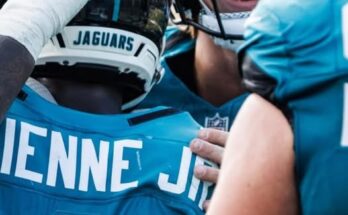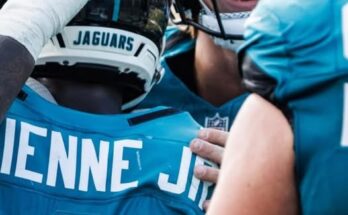Head Coach Kris Knoblauch took the podium today to address the media following recent changes within the Edmonton Oilers organization. The atmosphere in the room was expectant as reporters anticipated insights into the coaching shakeup, the return of Paul Coffey in an advisory capacity, adjustments to special teams responsibilities, and how these moves are intended to shape the Oilers’ trajectory moving forward. Knoblauch approached the questions with a clear and thoughtful demeanor, emphasizing the collaborative nature of the team and the organization’s commitment to continuous improvement.
Starting with the coaching changes, Knoblauch acknowledged that in the high-stakes world of professional hockey, adjustments to the coaching staff are not unusual, especially when the team is seeking to enhance performance and maximize player potential. He explained that the decision to restructure the coaching lineup was a collective one made by management and himself, aimed at injecting fresh perspectives and leveraging the unique strengths of each coach to elevate the overall tactical and developmental framework.
Knoblauch expressed respect and appreciation for the outgoing members of the staff, noting that their contributions laid important groundwork. However, he stressed that the organization’s ambition to contend for championships requires constant evaluation of methods, responsiveness to the evolving game, and a coaching group whose philosophies align closely with the current needs of the roster. He framed these changes not as a critique but as a positive step toward better alignment, integration, and synergy among the coaching staff.
A significant highlight of the day’s announcements was the return of Paul Coffey, the legendary defenseman and Hockey Hall of Famer, to the Oilers in an advisory role. Knoblauch shared his enthusiasm about bringing Coffey back into the fold, emphasizing that Paul’s vast experience and deep understanding of the game, especially on the defensive side, will be an invaluable resource for both players and coaches alike. Coffey’s new role is designed to provide mentorship, strategic insight, and a historical perspective that can inspire the team and help them connect with the rich legacy of the Oilers franchise.
Knoblauch elaborated on the nature of Coffey’s advisory position, explaining that Paul will be heavily involved in reviewing video footage, offering input on defensive positioning, power play setups, and penalty killing strategies. His eye for detail and ability to read the flow of the game are expected to help the coaching staff identify nuances that could translate into tactical advantages. Furthermore, having a figure of Coffey’s stature around the locker room is seen as a morale booster, especially for younger defensemen looking to refine their skills and develop their hockey IQ under the guidance of one of the greatest players to ever wear the Oilers jersey.
Turning to special teams, Knoblauch discussed the adjustments in assignments that accompany coaching changes, underscoring that special teams are a critical area for the Oilers. He noted that success in power play and penalty kill situations often determines the outcome of close games, especially in the playoff environment. Therefore, ensuring that the right coaches are responsible for these units is paramount. Knoblauch described how the new structure seeks to capitalize on each coach’s expertise and past successes, with an emphasis on accountability, innovation, and adaptability.
The power play unit, he explained, will focus on creating more dynamic puck movement, improving shot quality, and enhancing player positioning to generate high-danger scoring chances. Knoblauch highlighted that while the Oilers have historically had explosive talent, the goal is to refine the system to be less predictable and more versatile, allowing players to read the ice and exploit weaknesses in the opposition’s penalty kill. On the penalty kill side, the approach will emphasize aggressive puck pursuit, maintaining tight gaps, and disciplined stick work to reduce scoring chances against, all while transitioning quickly to offense when opportunities arise.
Knoblauch emphasized that the coaching staff will work closely with players to communicate the tactical intentions behind each special teams scheme, ensuring that everyone understands their roles and responsibilities. He noted that continuous feedback, video analysis sessions, and on-ice drills tailored to special teams situations will be integral parts of practice routines. This focused preparation aims to build confidence and consistency, two elements that are often missing in critical moments.
When asked about the challenges in managing these changes mid-season, Knoblauch acknowledged that any adjustment period carries a degree of difficulty. He stressed that the team’s leadership group — both players and coaches — has embraced a mindset of growth and resilience. The Oilers have experienced success before, and they know that sustained excellence requires constant adaptation. He praised the professionalism of the players in absorbing new information and their willingness to embrace new roles if it benefits the collective.
Knoblauch also spoke to the importance of maintaining a strong team culture throughout the transition. He pointed out that clear communication, mutual respect, and a focus on common goals are key to ensuring the group stays unified. The coaching changes, rather than fracturing the locker room, are intended to bring fresh energy and focus. He highlighted that the players are motivated by a desire to prove themselves and respond positively to the challenges ahead.
Regarding the impact on player development, Knoblauch was optimistic. He believes that the advisory role of Paul Coffey will be a catalyst for growth, particularly for young defensemen who can learn from one of the best in the history of the game. Knoblauch explained that one-on-one interactions, skill refinement sessions, and strategic discussions with Coffey will complement the regular coaching efforts and offer players a broader perspective on their development.
Knoblauch also touched on the importance of balancing immediate performance goals with long-term player growth. While the Oilers are focused on winning now, they recognize the need to cultivate talent and prepare players for sustained success. The new coaching structure and Coffey’s involvement are seen as part of a broader plan to build a strong foundation that will serve the team well in the coming years.
In addition to tactical and developmental aspects, Knoblauch addressed the mental and emotional side of the game. He acknowledged that coaching changes can sometimes create uncertainty or anxiety within a team, but reiterated the organization’s commitment to supporting players through transitions. Knoblauch shared that the staff has increased its efforts to foster open dialogue, provide mental health resources, and encourage a positive environment where players can thrive both on and off the ice.
When discussing his personal approach during this period, Knoblauch was candid about the importance of leadership and accountability. He stressed that as head coach, he views his role as both a strategist and a mentor. The changes allow him to delegate responsibilities more effectively, drawing on the strengths of his assistants and the wisdom of Paul Coffey to craft a comprehensive coaching approach. Knoblauch emphasized that leadership is about empowering others and creating a culture of trust and excellence.
Looking ahead, Knoblauch expressed confidence in the team’s ability to adjust quickly and perform at a high level. He acknowledged that the season is a marathon, not a sprint, and that the Oilers are committed to continuous improvement. The coaching changes and Paul Coffey’s return are part of a larger vision to position the Oilers as a perennial contender and a team that adapts intelligently to the evolving demands of the NHL.
In closing, Knoblauch thanked the fans for their unwavering support and encouraged them to remain patient and optimistic. He recognized that change can bring uncertainty but assured that the organization is moving decisively with a clear plan. The combination of new coaching dynamics, legendary mentorship from Coffey, and a talented roster sets the stage for an exciting remainder of the season and beyond.
Overall, today’s press conference painted a picture of a team in transition but with a purposeful direction. Kris Knoblauch’s thoughtful comments reflected a blend of realism about the challenges and enthusiasm for the opportunities ahead. The Oilers are leaning into their rich history while embracing innovation and collaboration, aiming to reignite their championship aspirations with renewed energy and a fresh coaching approach.



